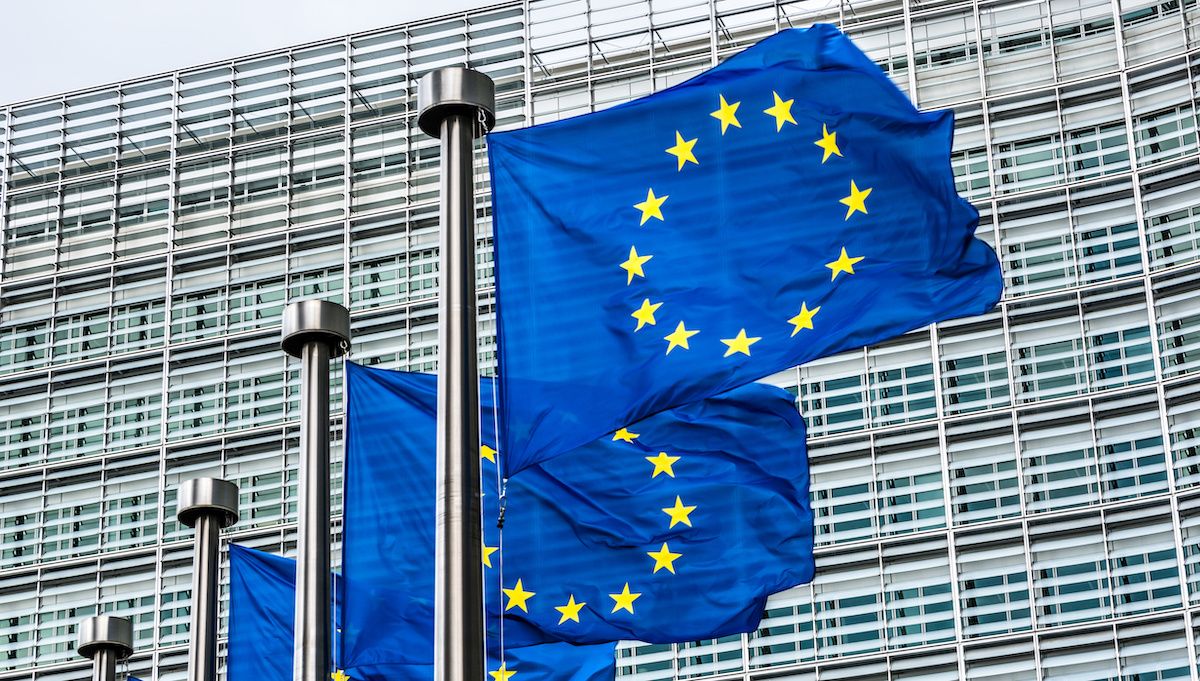- Bone Health
- Immunology
- Hematology
- Respiratory
- Dermatology
- Diabetes
- Gastroenterology
- Neurology
- Oncology
- Ophthalmology
- Rare Disease
- Rheumatology
EC Approves Celltrion Denosumab, Aflibercept Biosimilars
Celltrion expands its reach in Europe, securing marketing authorization from the European Commission (EC) for its denosumab biosimilar candidate (Stoboclo and Osenvelt) and its aflibercept biosimilar (Eydenzelt).
The European Commission (EC) bestowed 2 major biosimilar approvals for Korea-based Celltrion, granting marketing authorization to Eydenzelt, an aflibercept biosimilar, and Stoboclo and Osenvelt, 2 denosumab biosimilars with different indications.1
Celltrion expands its reach in Europe, securing marketing authorization from the European Commission (EC) for its denosumab biosimilar candidate (Stoboclo and Osenvelt) and its aflibercept biosimilar (Eydenzelt). | Image credit: Ivan - stock.adobe.com

Aflibercept agents are used to treat retinal conditions such as neovascular (wet) age-related macular degeneration (AMD), macular edema following retinal vein occlusion, diabetic macular edema, and myopic choroidal neovascularization. Denosumab products are used in patients with musculoskeletal issues, such as increased fracture risk related to bone metastases and osteoporosis.
“The European Commission approvals of Eydenzelt, Stoboclo and Osenvelt are significant milestones and a welcome addition to our portfolio of medicines to address a significant unmet need in therapeutic areas including skeletal-related disorders and ophthalmology,” Min Kyoung Jeon, vice president and head of regulatory affairs division at Celltrion, commented.
About Eydenzelt and Aflibercept Biosimilars
Eydenzelt, along with its other aflibercept biosimilar counterparts, references Eylea (aflibercept), an anti–vascular endothelial growth factor (VEGF) agent that works by changing how much blood is able to access the retina.2
Essentially, aflibercept acts like a trap for VEGF, which normally helps blood vessels grow and leak fluid. By blocking VEGF, aflibercept prevents abnormal blood vessel growth and leakage, which is important for treating conditions like wet AMD and diabetic eye disease.3
The European approval of Eydenzelt represents the seventh aflibercept approval for the region, following those for Ahzantive, Afqlir, Pavblu/Skojoy, Opuviz, Yesafilli, and Baiama.4
AMD affects about 34 million people in the European Union (EU) and 22 million in its 5 most populous countries. By 2050, cases may rise by 25% due to aging, according to the European Society of Retinal Specialists.5 Similarly, more than 25% of patients with diabetes also have diabetic eye diseases, which affect nearly 4 million in the EU, with about 1 million needing treatment.
About Stoboclo/Osenvelt and Denosumab Biosimilars
Denosumab products are typically approved with 2 names, each corresponding to a different indication. Stoboclo references Prolia, which is indicated for patients with osteoporosis; Osenvelt references Xgeva, indicated for the treatment and prevention of bone fractures in patients at an increased risk of fracture due to bone metastases.1
Denosumab is a monoclonal antibody that blocks the receptor activator of the nuclear factor kappa-B ligand (RANKL) protein that is responsible for bone breakdown.6 By stopping bone loss, it helps strengthen bones, increase bone density, and lower patient risk of fractures.
The burden of osteoporosis in Europe was highlighted in the 2021 SCOPE report.7 In 2019, 32 million people in the EU, Switzerland, and the UK had osteoporosis, leading to 4.3 million fragility fractures. These fractures cost €57 billion and caused nearly 250,000 deaths, comparable to major diseases like lung cancer and diabetes. With an aging population, osteoporotic fractures are expected to rise by 25% by 2034.
The approvals for Stoboclo/Osenvelt follow those for Ospomyv/Obodence and Jubbonti, biosimilars for Prolia, and Xbryk and Wyost, biosimilars for Xgeva.8,9
References
1. Celltrion expands biosimilar portfolio in the European Union following European Commission approval of two biosimilars. Press release. Celltrion; February 20, 2025. Accessed February 20, 2025. https://www.celltrion.com/en-us/company/media-center/press-release/3691
2. Aflibercept (intraocular route). Mayo Clinic. Updated February 1, 2025. Accessed February 20, 2025. https://www.mayoclinic.org/drugs-supplements/aflibercept-intraocular-route/description/drg-20075363
3. Adams BS, Sorhaitz W, Stringham J. Aflibercept. Stat Pearls. Updated July 4, 2023. Accessed February 20, 2025. https://www.ncbi.nlm.nih.gov/books/NBK582136/
4. Biosimilar approvals. The Center for Biosimilars®. Updated February 20, 2025. Accessed February 20, 2025. https://www.centerforbiosimilars.com/biosimilar-approvals
5. Retinal diseases in Europe. European Society of Retinal Specialists. August 2017. Accessed February 20, 2025. https://miloftalmica.it/wp-content/uploads/2021/07/Euretina-Retinal-Diseases.pdf
6. Denosumab for osteoporosis. UpToDate.com. Updated January 16, 2025. Accessed February 20, 2025. https://www.uptodate.com/contents/denosumab-for-osteoporosis
7. Kanis JA, Norton N, Harvey NC, et al. SCOPE 2021: a new scorecard for osteoporosis in Europe. Arch Osteoporos. 2021;16(1):82. doi:10.1007/s11657-020-00871-9
8. FDA, EMA approve second pair of denosumab biosimilars. The Center for Biosimilars. February 17, 2025. Accessed February 20, 2025. https://www.centerforbiosimilars.com/view/fda-ema-approve-second-pair-of-denosumab-biosimilars
9. FDA approves first denosumab biosimilars. The Center for Biosimilars. March 5, 2024. Accessed February 20, 2025. https://www.centerforbiosimilars.com/view/fda-approves-first-denosumab-biosimilar
Newsletter
Where clinical, regulatory, and economic perspectives converge—sign up for Center for Biosimilars® emails to get expert insights on emerging treatment paradigms, biosimilar policy, and real-world outcomes that shape patient care.
